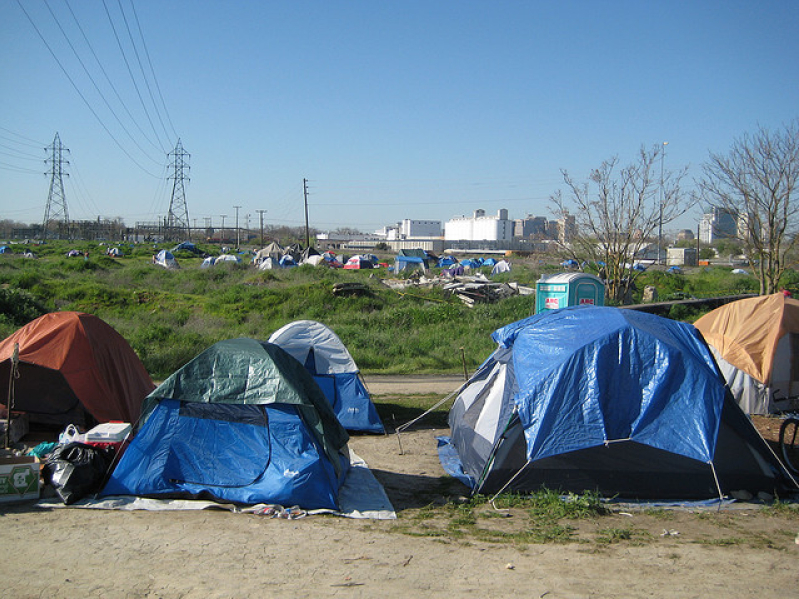
California's Silicon Valley is best know for its tech innovation and high cost of living, but the ever-widening contrast between rich and poor in the area has some wondering why the area's biggest tech companies aren't wiping out homelessness and poverty. Is it really that easy?
"It's high time for Apple, Google, Facebook and other Silicon Valley companies to acknowledge their role in creating a valley that not only is an economic powerhouse but also is crippled by inequality and poverty," points out CNN's John D. Sutter in his most recent editorial. "These companies aren't entirely to blame, but their founders and employees do have the cash to help stop this valley of strip malls and subdivisions from becoming a place where only the very wealthy can survive. With few counterexamples, the tech set has been shirking on its local civic duties -- either ignorant of the fact that one in three kids in this rich valley is at risk for hunger or largely unwilling to care."
The biggest problem, as observed by many who live and work in the area, is that the area's high prices are dictated by the powerful tech companies, and the attitudes are just getting worse.
"Silicon Valley is becoming Aspen," Peter Hero, the philanthropist, told Sutter. "It's becoming a region of rich people and its servants, and it shouldn't be that way. There's not a sense of community. There's not a sense of civic engagement and civic responsibility ...
"We need people to participate -- to serve on the board of the food bank, to serve on the board of the preschool association. If everyone did, we wouldn't have a problem. They'd see the issues first hand ... (But) there isn't that sense of volunteerism and engagement."
This "moral shame" hanging over Silicon Valley is staggering, and Sutter points out that raising taxes on the richest of the rich would go a long way to eliminate many of the problems. Bloomberg discovered in March that eight of the biggest tech companies added $69 billion to offshore profits last year, essentially dodging the higher tax rates in the United States. While not all eight of the companies are located in Silicon Valley, both Google and Apple are on that list.
And if you're wondering about the millions of dollars that these companies donate to charity each year, there are also some loopholes that not many people talk about in relation to that. Three of the top philanthropist billionaires in the country -- Jan Koum of WhatsApp, Sergey Brin of Google and Nicholas Woodman of GoPro -- are located in Silicon Valley, but not all who donate are as genuinely generous.
"Ninety percent of the contributions given to the foundation are put into donor-advised funds, according to Carson. The donor gets a tax break immediately -- and can decide later how and where to spend the money, as long as it goes to a nonprofit," Sutter said.
He went on to explain one such example with Facebook CEO Mark Zuckerberg who gave $990 million to a community foundation, but most of it is still sitting in limbo while he decides what to do with it.
"The difference with Silicon Valley is we're the one region in the country that could actually eliminate child poverty -- because of the amount of accumulated wealth," said Raj Jayadev, from Silicon Valley De-Bug, a group that raises awareness about poverty and other social justice issues in the valley.
"If we don't take that opportunity, you sorta wonder what the larger point of Silicon Valley is."






